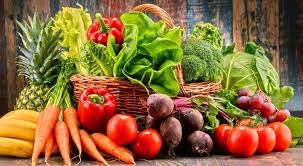Nutrition
Stronger leadership, better nutrition – Why Ghana needs a National Nutrition Council
Ghana has no shortage of policies on nutrition. From commitments to global platforms like the Nutrition for Growth (N4G) Summit to local programmes targeting maternal and child health, the frameworks exist. And yet, the numbers tell us we are still lagging behind.
According to the Ghana Demographic and Health Survey (GDHS) 2022, one in five children is chronically malnourished and nearly half of women of reproductive age suffer from anaemia. These are not mere statistics; they are reflections of families struggling, children missing their potential, and a nation paying the price in lost productivity.
So, what is the problem? Coordination.
Nutrition is not the sole responsibility of the Ministry of Health (MoH). It is linked to agriculture through the food we grow, to education through the meals children eat in school, and to social protection through the safety nets that shield vulnerable households. But too often, these sectors work in silos, with overlapping projects and fragmented budgets. The result is duplication of efforts, inefficiency, and reduced impact.
This is why Ghana urgently needs a National Nutrition Council. Not another layer of bureaucracy, but a high-level body reporting directly to the Presidency, with the mandate to align efforts across ministries, secure dedicated financing, and drive accountability.
Other countries have shown the power of such structures. Rwanda established a national nutrition coordination mechanism under the Office of the Prime Minister, and within a decade, it achieved one of the fastest reductions in stunting in Africa. Ethiopia’s Food and Nutrition Council has also provided the political leadership needed to keep nutrition at the centre of national planning.
Ghana can and must follow suit. A National Nutrition Council will mean that nutrition is no longer buried in the fine print of health sector budgets but elevated to the level of national development strategy. It will mean that Parliament can hold a single accountable body to answer for progress, and civil society can monitor with clarity.
The time has come to stop managing nutrition as an afterthought. A council will give Ghana the leadership structure to match its ambitions. Without it, our pledges, no matter how bold, risk fading into the background noise of unfinished business.
Feature article by Women, Media and Change under its Nourish Ghana: Advocating for Increased Leadership to Combat Malnutrition Project in collaboration with Eleanor Crook Foundation
Join our WhatsApp Channel now!
https://whatsapp.com/channel/0029VbBElzjInlqHhl1aTU27
Nutrition
Nutrition and Breast Cancer: Why What You Eat Matters

October is Breast Cancer Awareness Month, a time when the world turns pink to remind us that early detection and prevention save lives. But beyond the screenings and campaigns, there’s another powerful prevention tool many people overlook: nutrition.
Emerging research shows that what we eat can influence our risk of developing breast cancer. Diets high in processed foods, red meat, and refined sugars can increase inflammation and disrupt hormones—conditions that support the growth of cancer cells.
On the other hand, a diet rich in fruits, vegetables, legumes, and whole grains provides the antioxidants and nutrients the body needs to protect cells from damage.
Foods like tomatoes, leafy greens, nuts, and fatty fish (such as salmon and sardines) are especially beneficial. They help reduce inflammation and support hormone balance, both critical in breast health. Meanwhile, limiting or avoiding alcohol, stopping smoking, and maintaining a healthy body weight are proven ways to lower one’s risk.
Nutrition alone isn’t a guarantee against cancer, but it’s a vital part of a healthy lifestyle that also includes regular exercise, adequate sleep, and routine breast checks.
At Women, Media and Change (WOMEC), we continue to advocate for women’s health through information and empowerment. We urge women everywhere to eat right, get screened, stay informed, and take charge of their well-being.
Every healthy choice brings you one step closer to prevention. The right diet doesn’t just nourish your body—it could help save your life.
Feature article by Women, Media and Change under its “Nourish Ghana: Advocating for Increased Leadership to Combat Malnutrition” Project.
Join our WhatsApp Channel now!
https://whatsapp.com/channel/0029VbBElzjInlqHhl1aTU27

Nutrition
Plantain Pizza

Ingredients
• 2 ripened plantains
• 6 eggs
• 1 bottle vegetable oil
• 2 large onions
• 2 large tomatoes
• Bell pepper (green, red, yellow) – 1 each
• Cheese (optional)
• 5 sausages
• Seasoning
• Salt to taste
• 3 tablespoonfuls of curry powder
• 2 tablespoonfuls of thyme powder
Method
Wash and cut the ripened plantains into smaller round shapes. Sprinkle some salt on them and mix thoroughly.
Preheat oil in a pan and fry the plantains until golden brown, then set aside.
Break the eggs into a bowl, add a pinch of salt and seasoning, and whisk together.
Pour some oil into a pan and add diced onions, bell peppers, and fresh tomatoes. Add chopped sausages and lightly season with a pinch of salt, seasoning, curry, and thyme powder.
Allow to fry for about three minutes, then pour the mixture into the bowl of whisked eggs and mix to form a uniform blend.
Pour the mixture into a pan and neatly arrange the fried plantains on top. Sprinkle cheese over it (optional).
Cover the pan and cook under low heat for about 15 to 20 minutes until set and golden.
Remove from heat, transfer onto a flat plate, and cut into triangular slices.
Serve and enjoy your delicious Plantain Pizza! 🍕
By Theresa Dzifa Tsetse
Join our WhatsApp Channel now!
https://whatsapp.com/channel/0029VbBElzjInlqHhl1aTU27







